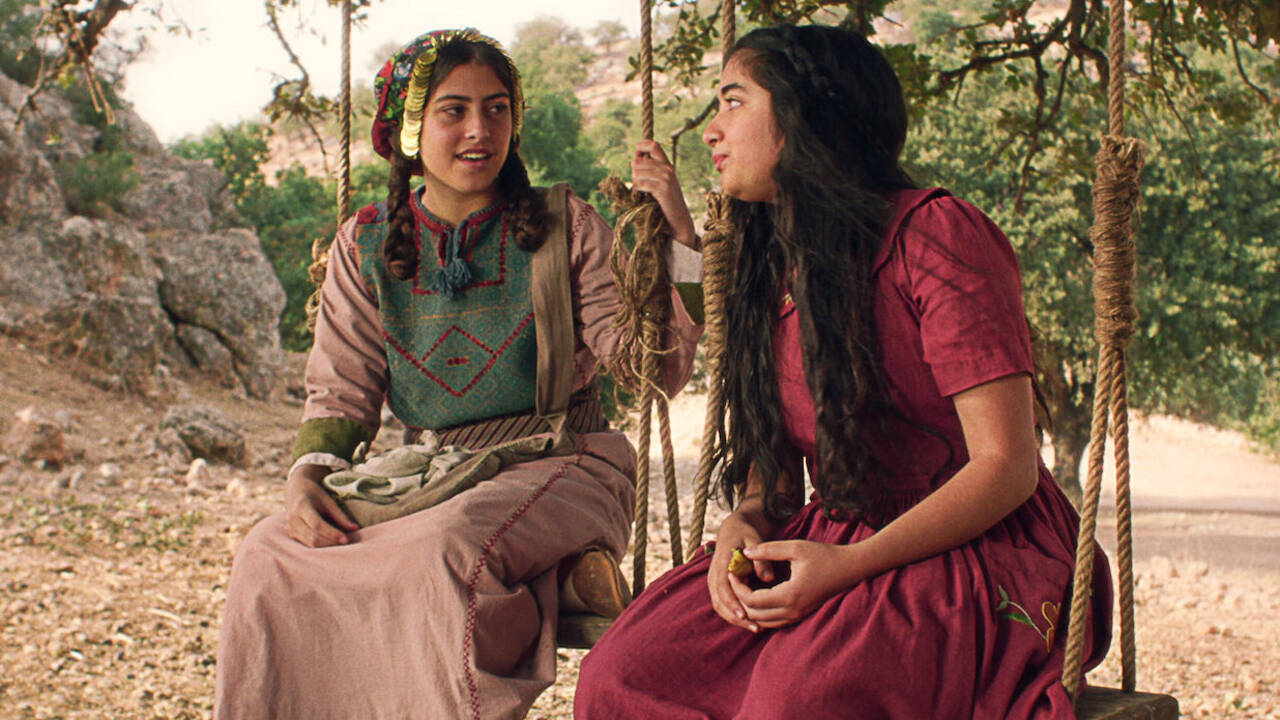‘Farha’ Is a Brutal Look at the Ethnic Cleansing of Palestine

Content note: This article contains references to violence against children, including a newborn.
Farha, the Netflix drama directed by Darin J. Sallam, starts off with a plot we’ve seen before: Farha (Karam Taher) is a teenage girl living in a rustic village, and she wants to travel to a nearby city to attend school. Her father is conflicted, though. Educating his daughter goes against tradition, plus there’s an armed conflict happening nearby. Will Farha be better off traveling to the city to learn, or marrying close to home, where it’s safer?
The question of her education soon becomes a moot point, though. The story takes place in 1948 Palestine, when the British Mandate expired and Jewish settlers created the modern state of Israel. By the second act, soldiers have taken the village, and Farha’s father locks her in a cellar to keep her safe. Trapped in the dark amidst jars of grain, Farha watches atrocities take place from between the slats of the wooden door.
At first, the film is filled with music, color, and the quiet optimism of village life. Farha’s friend Farida (Tala Gammoh) comes to visit, and joins Farha at a bridal shower filled with singing and dancing. Farha argues with her father about being allowed to go to school, but their love for each other is apparent even in their conflicts.
Within that breezy life, though, there’s foreshadowing of the horrors to come. Farha peeks out from behind curtains while her father discusses her education. Trucks full of British soldiers drive through the village, and Farha joins other children in yelling at them to go away. Behind closed doors, Farha’s father argues with members of an armed militia taking on the newly formed Israeli Defense Forces.
Most of the story takes place in the cellar, though, with careful cinematography and sound editing to convey the tedium of Farha’s hiding without making the movie itself tedious. It mostly succeeds, as we watch Farha play halfhearted games to keep herself occupied and strain to see what’s going on outside the door.
The heart-wrenching climax of the film comes when a neighboring family passes through the courtyard outside the door, and stops to allow the mother time to give birth. (Note: This paragraph and the next contain detailed plot points.) A group of soldiers catches up with the family and executes them. The soldiers find the newborn baby, and the commanding officer orders the one soldier wearing a kippah to kill him. The young soldier, visibly sickened and distraught by what’s happening, can’t bring himself to do it, and instead covers him with a handkerchief and leaves. As the baby cries, Farha tries to get out to help him, but she can’t get the door open until long after he’s died of exposure. Later, she stares at him, as if seeing countless thwarted futures in his tiny body.
This is the scene that enraged the Israeli government when the film was set to screen at a theater in Jaffa. It demonstrates why Palestinian filmmakers (and writers, and artists, and commentators) are put in an impossible position. Western culture is so awash in antisemitic tropes that any frank portrayal of the IDF ends up feeding those tropes—which, in turn, gives the current Israeli government cover to shut down discussion of Israel’s history. Did that scene need to linger so long on its most barbaric moment? I don’t know, but it’s significant that Sallam chose to depict the most visibly Jewish character as someone who’s capable of salvaging his moral compass.
The Nakba happened, and just as with the countless other ethnic cleansings that have been committed throughout history, we need to grapple with it before we can start to make things right. Ordinary people are capable of extraordinary evil, and Farha tells the story of such evil with equal parts compassion and righteous anger.
Farha is now streaming on Netflix.
(featured image: Netflix)
Have a tip we should know? tips@themarysue.com